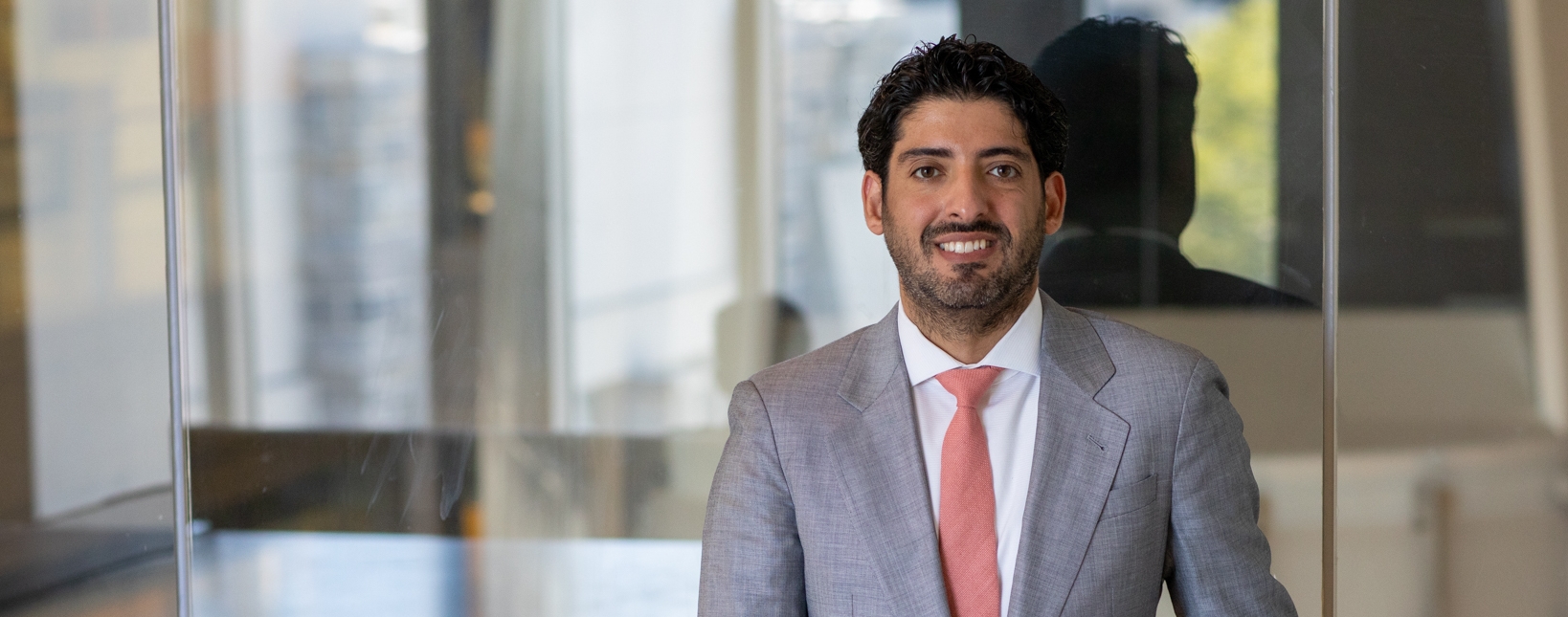Ali Mehrizi-Sani: Control Without Knowledge

Introducing Ali Mehrizi-Sani
- Joined ECE August 2019
- Assistant, then associate, professor, Washington State University, 2012-2019
- Visiting professor, Electric Drives and Machines Institute, Technische Universitït Graz, Graz, Austria, Nov. 2014, Jan. 2016, Nov.-Dec. 2016, and May 2018
- IEEE PES Outstanding Young Engineer Award, 2018
- IEEE Mac E. Van Valkenburg Early Career Teaching Award, 2017
- Ph.D., electrical engineering, University of Toronto, Ontario, Canada, 2011
- M.S., electrical engineering, University of Manitoba, Manitoba, Canada, 2007
- B.S., electrical engineering, Sharif University of Technology, Tehran, Iran, 2005
- B.S., petroleum engineering, Sharif University of Technology and Petroleum University of Technology, Tehran, Iran, 2005
Control Without Knowledge
Sustainable, decentralized, and versatile, renewable energy is transforming the electrical grid. However, this shift also presents major challenges for the reliability and security of power systems. Ali Mehrizi-Sani, who recently joined ECE as an associate professor, is developing new controllers that will make renewable power systems more independent to improve their performance and protect them from cyber attacks.
Model-Free Renewable Power Systems
“The conventional power system uses large synchronous generators—hydro dams, nuclear plants, gas plants, or coal plants,” Mehrizi-Sani explains. “They have significant inertia because they are big machines.” In the case of renewable power sources, he continues, we don’t have that mechanical inertia. “Renewables are connected to the electrical grid through power electronics inverters.”
These power electronics help the system move more quickly, which is both a blessing and a curse according to Mehrizi-Sani. “It’s good because if it doesn’t have inertia, if a disturbance happens and you want to fix it, that can happen fast. It’s bad because without inertia, the system itself also reacts fast. That is, it’s going to fall fast, but we can also make it recover fast.”
Because they are so dynamic, and because vendors do not always provide models of their inverters, renewable power systems often function without accurate, up-to-date models. Humans monitoring the systems lack good quality information on their status. “This is a significant departure from the way we used to do things,” he says. “We now need to operate with model-free control.”
To help renewable power systems react to disruptions (such as clouds passing over solar panels or units failing) without models, he is creating new controllers that will allow photovoltaic inverters and other devices to monitor their own behavior, compare it with how they should be functioning, and respond independently.
“We’ve had very encouraging results. The idea is to help the modern power system operate with limited knowledge but still getting very good performance.”
Cybersecurity for Renewables
Using renewable energy sources in the electrical grid also presents a new set of cybersecurity challenges. “Somebody could get into the inverters and try to manipulate the measurements or try to attack the sensors inside, or they could get in the way of firmware updates and communication links,” Mehrizi-Sani explains. He is researching ways to enable operators to detect and defend against cyber attacks.
This research is funded through the NSF. Mehrizi-Sani was excited to come to Virginia Tech, citing being able to work with talented students and proximity to Washington, D.C.—and the NSF, DOE, and other major organizations supporting research.
However, he still travels extensively to promote his work and collaborate with international partners. In the fall semester, Mehrizi-Sani presented his work in China, Japan, France, Portugal, and the United Kingdom.
“It is important to create partnerships abroad, so I am talking about my work, but also representing Virginia Tech,” he explains. He has taught and researched in the past at Technische Universitït Graz, and he is collaborating with researchers at the University of Strathclyde in the United Kingdom.
Mehrizi-Sani is also excited to bring his and Prof. Chen-Ching Liu’s NSF-supported international research experience program to Virginia Tech to send students to the University of Strathclyde in Glasgow, Scotland. The program covers travel expenses for several engineering students to do research in Scotland over the summer, including flights, accommodations, and living expenses—“But we don’t cover the Scotch,” he jokes.
“It is important for students to get exposure to the outside world, to the European experience,” he says, “to see how other people do things—their power system is operated based on a somewhat different design philosophy, and they have a higher share of renewables. So, it’s very important for students to get the flavor of where the rest of the world is.”
This spring, he is teaching a graduate course on High-voltage DC/FACTS (Flexible AC Transition Systems) and Renewables, and he plans to establish his own lab at the Power and Energy Center.


